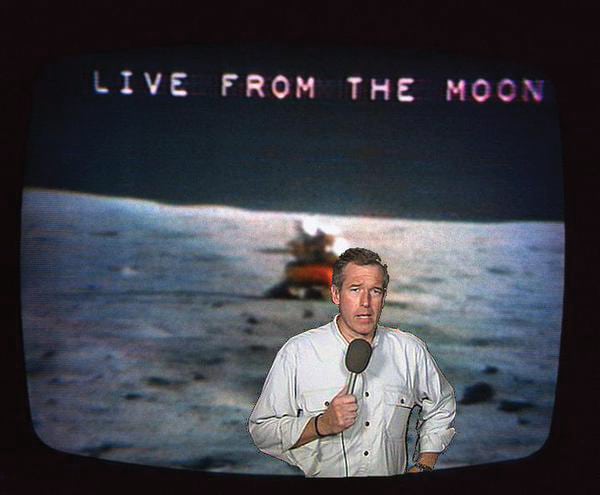
The growing manifestation of becoming a joke has sparked a new and growing phase in the lifecycle of your crisis and recovery plan. What do you do when your brand becomes the object of the latest globally trending Internet meme?
What’s the right course of action when thousands of satirical, animated GIFs are being produced and shared every hour? Or you’re Brian Williams and fake images of you reporting from the Moon are spreading across the Web? Perhaps you’re Apple and your awesome new MacBook has become the object of ridicule involving a Spanish-speaking laughing man on YouTube.
Managing a crisis that slides toward satire is nothing new, of course.
For decades, brands and personalities have been at the mercy of latenight talk show hosts poking fun at their missteps. Social media, though, has made it so much more urgent and pervasive.
There are three key steps to follow if your brand becomes a punchline on social media channels.
▶ Prevention (still) is better than cure. Our moms were right. The easiest way to lower your risk of becoming a punch line—and being able to handle it swiftly, decisively and masterfully if it does—is to make sure you’re carrying out all the basics of social media monitoring, online influencer advocacy programs and investing in growing your social media communities.
Yes, this means more than just buying one-million Facebook fans; it means investing intellectually and creatively in establishing a strong core group of people who love your brand and are passionate about sharing that affection with others.

Source: Twitter for Brian Williams Moon shot
In a social media crisis, these people are your biggest assets in helping the brand roll with the punches, graciously taking the hits you can’t avoid, and correcting misinformation on your behalf. Add scenario planning for a ‘crisis of satire’ into your core crisis communications planning and playbook.
▶ Be comfortable—and gracious—in taking a few hits. Remember, as maddening as the constant stream of funny (to everyone but you and your board) content being shared at your expense is, it’s almost always a symptom that was caused by a separate misstep.
You won’t be able to get anything taken down, removed or retracted unless the root cause is clearly and factually inaccurate.
The stuff you’ll see on your social media monitoring reports (and yes, you should pay close attention to them all the time) will take on a life of its own and no screaming, crying, yelling or threats of litigation can undo it.
Once it’s online it’s there forever. Even when you’ve had it taken down, it’s still cached somewhere in cyberspace. It’s never really gone.
Prepare yourself—and your board members—that it is possible and more than likely that, at some point, your brand will go through these rigors. You constantly need to be at the ready.
▶ What to do when it’s already happened? Stay humble and have a sense of humor. Assess the crisis: Is it based on a factual inaccuracy?
If so, have the root cause of that factual inaccuracy corrected with the journalist or influencer who started it all. Extinguishing the issue at the source is far more effective than fighting thousands of subsequent fires; all too often, you will just end up fanning the flames.
If it is factual, your brand has done something silly, watch your social media monitoring reports carefully and assess if the trend of posts is increasing or decreasing and make a call on if it will all blow over quickly enough, or if this is really a serious business threat.
In the case of a serious business threat it’s time to mobilize your friendly influencers and calmly, clearly and concisely get your point across on all your networks and owned media, to spread that message.
If it’s just a bit of fun at your brand’s expense, be pragmatic. Consider if there’s a way—and if it’s appropriate for your brand and industry—for you to own the joke. It’s amazing how a self-effacing chuckle at our own expense can quickly diffuse a situation, but it’s not a panacea.
Look at your broader market research and net promoter scores. Consider deploying quick, tactical research to quantifiably assess whether that crisis is having any negative effect on you.
It’s entirely possible that such a crisis actually ends up having a positive impact on a brand’s overall perception or helps your brand, product or service reach an entirely new audience and increase awareness levels.
Remember, a crisis can end up having a silver lining, so don’t panic and jump the gun on your response, particularly if your brand becomes the butt of late-night jokesters.
CONTACT: Ivan Ristic is president of diffusion PR. He can be reached at [email protected]
This article originally appeared in the May 4, 2015 issue of PR News. Read more subscriber-only content by becoming a PR News subscriber today.
